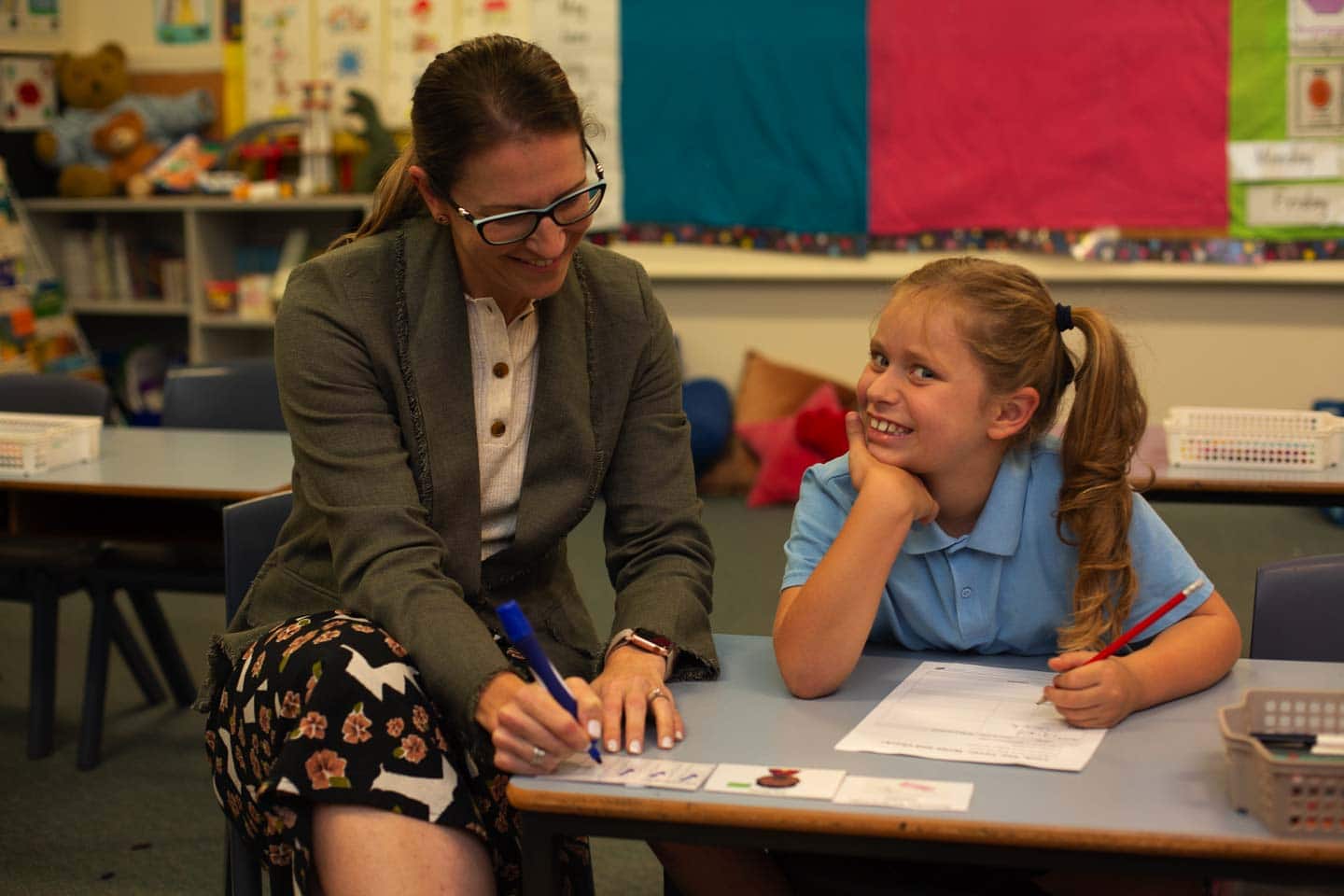According to the 2018 Teaching and Learning International Survey, less than 50 per cent of Australian teachers felt they were “‘well” or “very well” prepared to manage student behaviour. For teachers, this can lead to stress, burnout and high attrition rates, while students with challenging behaviours may miss the evidence-based interventions they need.
Australian principals believe classroom management is the number one challenge for new teachers and that only a third of them are well prepared for managing classrooms. The Grattan Institute recommends school leaders go beyond creating a school-wide behaviour plan, by also providing practical support for teachers to develop these classroom skills. Establishing a school-wide, consistent, and supported approach to behaviour management, grounded in Positive Teaching can help in a number of ways.

Diverse classrooms, diverse needs and a teacher training gap
In recent years, classrooms have shifted towards an evidence-based approach of inclusion. Children with special needs, social and demographic diversity are now placed together in mainstream classrooms. Only 38% of teachers feel prepared to support these varying needs as they attempt to successfully include these children in class.
Teachers emerge from pre-service training often lacking formal instruction in behaviour management. Their intrinsic motivations and optimism can be rapidly eroded when they are left unequipped in the classroom to address challenging behaviours. Professional development support is critical, to empower teachers with techniques and measures that are grounded in evidence.
Benefits of a school-wide approach to behaviour management
A school-wide approach will not only give your teachers the confidence, skills, and knowledge to address, manage and monitor behaviour, but reassure them that they are part of a team with a shared vision for the school. More experienced teachers will help newer colleagues, while those who need extra development will not feel singled out. Most importantly you will develop a consistent environment and culture for success, with clear expectations, abundant opportunities for praise and a functional, teacher-led approach to managing behaviour.
The problem with suspension
In 2019 in NSW alone, with around 806,000 students enrolled in government schools, there were around 55,000 short suspensions of around four days. Nearly 20,000 of those were for continued disobediences (ongoing trivial misbehaviour), and nearly 35,000 suspensions for aggressive behaviour.
The Positive Teaching workshop sequence
Rafferty and Jill Hellemans, both Board-certified behaviour analysts and special educators, have joined MultiLit to create professional development to help schools equip teachers with everything they need to implement an evidence-based approach to behaviour management. The aim is to empower teachers to create plans within the school system to address classroom context and assessments.
The first workshop, Positive Teaching for Effective Classroom Behaviour Management, is designed to fill the knowledge gap for teachers and provide a successful methodology for use in the classroom. It’s life-changing for teachers in their first five years, or all of those who have not received formal training in behaviour management.
Teachers will learn:
- How the classroom space cues behaviour,
- How to set expectations and establish rules,
- The importance of praise for good social behaviour as well as academic performance, and
- To clearly remind and reiterate consequences of not following classroom rules.
The second workshop, Foundations, Assessment and Measurement of Behaviour, builds on prior learning and goes deeper into effective practices for class-wide and individual positive behaviour supports. Teachers will develop techniques and skills to conduct Functional Behaviour Assessments (FBAs). Additional take-away resources will support implementation: behaviour profile checklists; data sheets; FBA interview forms; and graph templates to support data capture and informed decision making.
Professional development from MultiLit Positive Teaching and Learning guides teachers to address challenging behaviours and eliminate persistent low level behaviour problems in the classroom. Teachers will feel more confident and less stressed and discover greater capacity to support students with more complex behavioural and learning needs, while students will engage more fully. As their social, emotional, and behavioural wellbeing improves, so will their academic progress. It’s an approach that makes everyone thrive.
PD workshops can be delivered live, online in real time, or via self-paced e-learning.
To make enquiries for your school or to learn more, contact MultiLit.